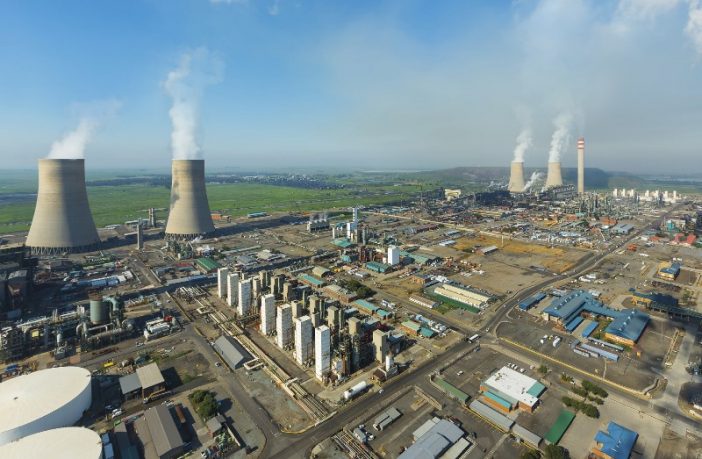- Civil society organisations and shareholder activists confronted Sasol during its 2021 Annual General Meeting (AGM), held on Friday, 19 November 2021, to challenge the company’s plans to continue using coal until 2050, its heavy reliance on gas as a “transition” replacement feedstock, and lack of adequate, detailed plans to reduce greenhouse gas (GHG) emissions.
Sasol is South Africa’s second-highest emitter of GHGs, after Eskom. Its Synfuels plant in Secunda, Mpumalanga, is the largest single-source point of GHG emissions on the planet and its pollution is a serious threat to human health. Sasol is also among the 100 companies estimated to be responsible for 71% of global GHG emissions, and one of the 90 corporate entities responsible for two-thirds of global carbon emissions between 1850 and 2010.
Communities affected by Sasol’s operations and shareholder activists asked the board to account for Sasol’s increasing emissions and ongoing pollution and demanded that it provide clarity on its plans to enable a meaningful assessment of its feasibility.
These civil society organisations highlighted the flaws in Sasol’s plans and asked shareholders not to endorse the company’s climate change ambition, strategy and actions as all signs point to Sasol’s continued use of fossil fuels to transition from coal, its intention to dramatically increase its use of fossil gas (with methane emissions 80 times more potent than carbon dioxide), and its lack of clear and time-bound commitments toward phasing out coal mining and coal use.
96% of shareholders voted in favour of its climate change report.
Fleetwood Grobler, Sasol’s CEO, was however at pains to point out that Sasol is “not simply going from one fossil fuel to another.” Despite this, beyond advocating for fossil gas as a ‘transition fuel’ and reiterating their target to reduce coal reliance by 25% by 2030, Mr Grobler was of the view that is too early to speculate whether Sasol’s transition plans could support concrete coal-phase out commitments beyond 2030 and by 2050.
In response to questions, Grobler also said plans to deploy renewable energy at its operations would be done in tranches, the first of which would only come online in the next few years as the procurement and implementation of these projects will take time.
Sasol expects 200 MW of renewable energy will be brought on board before 2025, at which point some of its emission reduction ambitions will be realised. Further, he said, Sasol had set clear, tangible targets for 2030 that comprise a 25% reduction in its coal usage. Sasol recently upped its carbon emissions reduction targets to 30% by 2030. Read more
Author: Bryan Groenendaal











